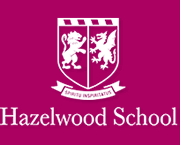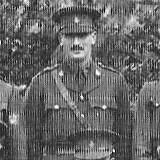
War Memorial
| Major Robert EDWARDS | |
|
1/1st Essex Yeomanry Date of birth: 6th August 1888 Date of death: 12th March 1965 Died aged 76 Unknown |

|
| Robert Edwards was born at 99, Inverness Terrace, Paddington on the 6th of August 1888 the third son of Arthur Janion Edwards JP, a barrister at law, and Hilda Margaret (nee Tennant) Edwards of Beech Hill Park, Waltham Abbey in Essex. He was educated at Hazelwood School until July 1901 where he was a member of the 2nd Football XI in 1899. He was a member of the Football XI in 1900 and of the Cricket XI in 1901. The school wrote the following on his 1900 football season: - "Right half. Has fairly earned his place in the team; should prove of great service next season when he has learnt to make use of his left leg and his head." Of his 1901 cricket season they wrote: - "Jumps about too much, but has a fair idea of batting. A fast and too erratic bowler, and good field." On leaving the school the school magazine wrote of him: - ".... has been very prematurely snapped up by Eton. He is in both Elevens and would have been a shining light in time." He went on to Eton College where he was in Mr. R.P.L. Booker's House from September 1902 to July 1907. He went on to Wye Agricultural College where he was Captain of the Cricket XI for three consecutive years and played for Essex 2nd XI on one occasion on the 10th of August 1910. On leaving school he went to work in Shropshire as a land agent for Lord Brownlow. He was commissioned as a 2nd Lieutenant in the Essex Yeomanry in 1909 and was promoted to Lieutenant on the 3rd of September 1912. He was mobilised on the outbreak of war and landed with his regiment at Le Havre on the 30th of November 1914. On the 14th of May 1915 the regiment was holding reserve trenches to the east of Potijze when the Germans began a bombardment on the front line trench, forcing the occupants there to retire. The Essex Yeomanry and other units were ordered to retake the trenches and their attack began at 2.15pm. . Their objective was some 1,000 yards from their positions and, although they advanced at the double, the Germans had fallen back before the Essex men arrived. The Germans then bombarded the retaken trench until dark forcing the Essex men to fall back to a line of dugouts in front of GHQ. Robert Edwards was wounded during this attack and lay in no man's land for twenty four hours before being able to re-join his men. Of the three hundred and two officers and men who made the assault, one hundred and sixty became casualties. A Medical Board which sat at Bristol on the 27th of April 1920 described the nature of his injuries: - "A piece of shrapnel entered the back of the neck at about 4th cervical vertebrae and perforated the palate came out through the left naso-labial furrow. Ala of left aperture of nose is defective and a cruci form linear scar above upper lip extending out to level of mouth. The left hard palate and alveolus have disappeared and in their place he wears an obturator with teeth fixed which enables him to speak and eat fairly normally. The obturator is retained in position by gold springs attached to an artificial denture in lower jaw." Due to the severity of his wounds he did not return to France and was later stationed at Shirehampton Remount Depot at Barrow Hill near Bristol and also served with the Remount Service in France. He was demobilised at the Officers Dispersal Unit, London on the 15th of September 1919. He was promoted to Major on the 1st of July 1920. He applied to resign his commission in a letter to the War Office dated the 16th of April 1921 citing the fact that he had moved to Wiltshire and would be unable to fulfill his duties. He resigned his commission on the 7th of May 1921, retaining the rank of Major. On leaving the army he worked as a land agent and lived at Beyton House, Beyton in Suffolk. He died at home. |
|
| Went on to Eton College |
Back